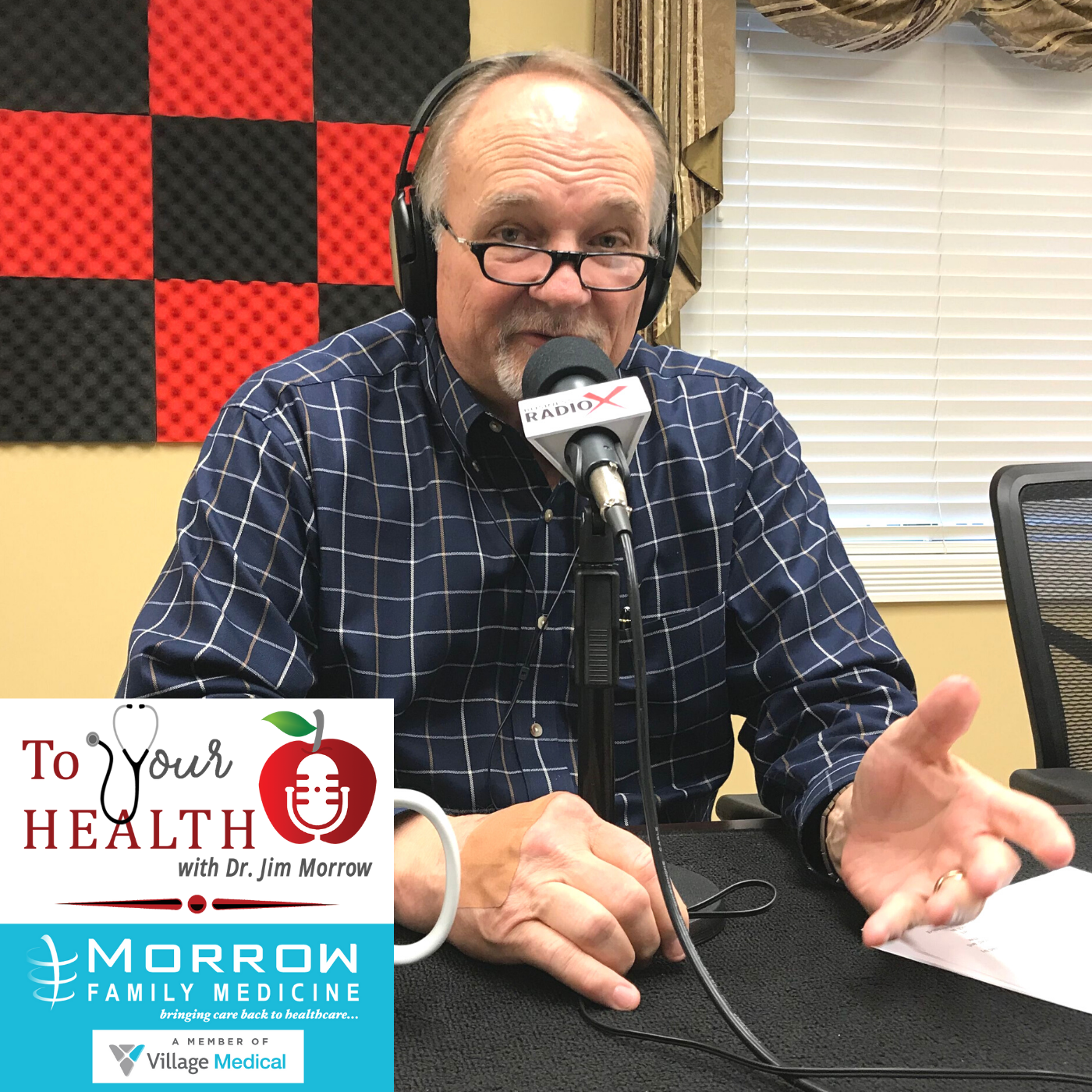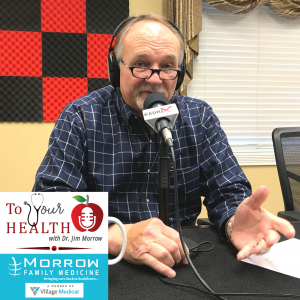
About Morrow Family Medicine, A Member of Village Medical
Morrow Family Medicine, a Member of Village Medical, is an award-winning, state-of-the-art family practice with offices in Cumming and Milton, Georgia. The practice combines healthcare information technology with old-fashioned care to provide the type of care that many are in search of today. Two physicians, three physician assistants and two nurse practitioners are supported by a knowledgeable and friendly staff to make your visit to Morrow Family Medicine, A Member of Village Medical one that will remind you of the way healthcare should be. At Morrow Family Medicine, a Member of Village Medical, we like to say we are “bringing the care back to healthcare!” The practice has been named the “Best of Forsyth” in Family Medicine in all five years of the award, is a three-time consecutive winner of the “Best of North Atlanta” by readers of Appen Media, and the 2019 winner of “Best of Life” in North Fulton County.
Village Medical offers a comprehensive suite of primary care services including preventative care, treatment for illness and injury, and management of chronic conditions such as diabetes, congestive heart failure, chronic obstructive pulmonary disease (COPD) and kidney disease. Atlanta-area patients can learn more about the practice here.
Dr. Jim Morrow, Morrow Family Medicine, and Host of To Your Health with Dr. Jim Morrow
 Dr. Jim Morrow is the founder and CEO of Morrow Family Medicine. He has been a trailblazer and evangelist in healthcare information technology, was named Physician IT Leader of the Year by HIMSS, a HIMSS Davies Award Winner, the Cumming-Forsyth Chamber of Commerce Steve Bloom Award Winner as Entrepreneur of the Year and he received a Phoenix Award as Community Leader of the Year from the Metro Atlanta Chamber of Commerce. He is married to Peggie Morrow and together they founded the Forsyth BYOT Benefit, a charity in Forsyth County to support students in need of technology and devices. They have two Goldendoodles, a gaggle of grandchildren and enjoy life on and around Lake Lanier.
Dr. Jim Morrow is the founder and CEO of Morrow Family Medicine. He has been a trailblazer and evangelist in healthcare information technology, was named Physician IT Leader of the Year by HIMSS, a HIMSS Davies Award Winner, the Cumming-Forsyth Chamber of Commerce Steve Bloom Award Winner as Entrepreneur of the Year and he received a Phoenix Award as Community Leader of the Year from the Metro Atlanta Chamber of Commerce. He is married to Peggie Morrow and together they founded the Forsyth BYOT Benefit, a charity in Forsyth County to support students in need of technology and devices. They have two Goldendoodles, a gaggle of grandchildren and enjoy life on and around Lake Lanier.
Facebook: https://www.facebook.com/MorrowFamMed/
LinkedIn: https://www.linkedin.com/company/7788088/admin/
Twitter: https://twitter.com/toyourhealthMD
The complete show archive of To Your Health with Dr. Jim Morrow addresses a wide range of health and wellness topics and can be found at www.toyourhealthradio.com.
Dr. Morrow’s Show Notes
Covid-19 Vaccine Booster Update- Myths About the Vaccines
· Myth 1: You can delay routine vaccinations until the pandemic is over.
- Routine childhood and adult vaccinations are an important part maintaining health.
- Vaccines prevent additional disease outbreaks during the pandemic.
· Myth 2: The COVID-19 vaccines were developed too fast to be safe.
- The technology used to develop the mRNA COVID-19 vaccines is not new;
- it has been extensively studied and used in cancer research.
- Additionally, mRNA vaccines have been studied for other infections including Zika, Rabies, and CMV.
- The other vaccine platform uses a weakened adenovirus, which has been studied extensively for other vaccines.
- The clinical trials for the COVID-19 vaccines were done with the same rigor as all vaccine trials and the results have been reviewed and approved by multiple independent advisory panels.
- The ability for the developers to be more efficient was due to increased collaboration, use of newer technology and funding due to the severity of the pandemic.
· Myth 3: There weren’t enough participants in the clinical trials to say the vaccines are safe.
- This is not true.
- The currently authorized COVID-19 vaccines enrolled tens of thousands of participants, many of whom were followed for two months after receiving the second vaccine.
- After authorization, the CDC, FDA, and other groups continue actively monitoring for safety concerns.
- There have been a few cases of blood clots plus low platelet counts occurring after the Johnson & Johnson vaccine.
- However, these are really rare (15 cases in 8 million doses) so the CDC continues to recommend the vaccine.
· Myth 4: I’ve already had COVID-19, so I don’t need to get the vaccine.
- It’s unclear how long a natural infection with COVID-19 provides immunity from the disease.
- There are reports of individuals becoming reinfected, even after being ill with COVID-19.
- Individuals who have had COVID-19 are encouraged to get vaccinated once they have recovered and symptoms are no longer present.
· Myth 5: The COVID-19 vaccines will alter my DNA.
- This is not possible.
- Messenger RNA (mRNA) vaccines work in the cell’s cytoplasm and never enter the cell nucleus where the DNA, your genetic material, lives.
- Like all mRNA, it is broken down quickly once it enters the cell and delivers the needed vaccine “message” to the cell’s machinery.
- The virus spike protein is also rapidly broken down once there is no longer any mRNA.
- The adenovirus platform uses DNA encoding the spike protein which does enter the nucleus.
- However, it does not alter the cell’s DNA in anyway.
- Messenger RNA (mRNA) vaccines work in the cell’s cytoplasm and never enter the cell nucleus where the DNA, your genetic material, lives.
· Myth 6: COVID-19 vaccines will make me infertile.
- There is currently no evidence that COVID-19 vaccination causes any problems with pregnancy or getting pregnant.
- In addition, there is no evidence that fertility problems result from any other vaccines.
· Myth 7: COVID-19 vaccines were developed to deliver a microchip into my body.
- There is not a microchip in the vaccines.
- This rumor started after comments were made about digital vaccine records.
- States maintain electronic immunization records to help people and their physicians know which vaccines they have received.
- There are no electronic components in any of the vaccines.
- The mRNA vaccines contain only mRNA, lipids (fat bubble), salts and other stabilizing agents, which are routinely used in other medicines.
- The other vaccines contain the non-replicating adenovirus vector and stabilizing agents.
· Myth 8: I don’t need to wear a mask after I’m vaccinated.
- The COVID-19 vaccines protect you from getting seriously ill from COVID.
- In July 2021, the CDC recommended masks for vaccinated people in certain areas of the U.S. to prevent the spread of the highly contagious Delta variant.
- The Delta variant is highly contagious because it can replicate to high levels in the airways of infected people.
- This means that vaccinated people may be able to transmit the Delta variant at a similar rate as unvaccinated people.
- You may want to wear masks and physical distance indoors and in big crowds to be cautious.
- This will also help protect people who can’t get vaccinated, like young children.
· Myth 9: I only need one dose of the vaccine to be protected against COVID-19.
- There is not enough data to support changing the recommendations on the COVID-19 vaccine schedule.
- You should get two doses of the mRNA vaccines to get the best protection.
· Myth 10: I have to pay for the vaccine.
- Anyone living in the U.S. can get the COVID-19 vaccine for free, even if you’re not a citizen or you don’t have health insurance.
Five Things You Need to Know
About Dietary Supplements
The dietary supplement industry is huge, with billions of dollars in sales. Now a new study is suggesting that supplements are mostly useless: in a wide-ranging analysis, researchers from Johns Hopkins University determined that supplements did not increase lifespan or reduce heart disease. On the plus side, the supplements were also found to rarely cause meaningful harm. But supplements may have some unusual downsides.
1. Supplements come in many forms.
· Whether in
o pill,
o powder
o or liquid form,
§ the goal of dietary supplements is often the same:
· to supplement your diet to get enough nutrients and enhance health
· They contain at least one dietary ingredient,
o such as vitamins, minerals, herbs, botanicals, amino acids or enzymes.
o Some of the most popular supplements come in a multivitamin (which can help you avoid taking a dozen pills each day),
o but they can also be purchased as a standalone supplement.
· The simplest common denominator?
o They’re labeled as dietary supplements.
· Some common dietary supplements include:
o Calcium
o Fish oil
o Echinacea
o Ginseng
o Garlic
o Vitamin D
o St. John’s wort
o Green tea
2. Some supplements are effective,
while others are not
· There’s a reason supplements are so popular: sometimes, they work.
· There is evidence that some supplements can benefit your overall well-being with little to no risk
· Common supplements that may benefit your health include:
o Vitamin B12, which can help keep nerve and blood cells healthy, make DNA and prevent anemia
o Folic acid, which can reduce birth defects when taken by pregnant women
o Vitamin D, which can strengthen bones and assist your immune system
o Calcium, which can promote bone health
o Vitamins C and E, which can prevent cell damage
o Fish oil, which can support heart health
o Vitamin A, which can slow down vision loss from age-related macular degeneration
o Zinc, which can promote skin health and slow down vision loss from age-related macular degeneration
o Melatonin, which can help counteract jet lag and help you sleep
However, despite the amount of research that’s been done on supplements
(since 1999, the National Institutes of Health has spent more than $2.4 billion studying vitamins and minerals),
§ scientific evidence isn’t completely clear.
§ Keep in mind:
· Most studies suggest that multivitamins
o won’t make you live longer,
o won’t slow cognitive decline
o and won’t lower your chances of disease,
§ such as heart disease,
§ cancer
§ or diabetes.
· In fact, it’s illegal for companies to make claims that supplements will treat, diagnose, prevent or cure diseases
· Also, the products you buy in stores or online may be different from those used in studies,
o so studies may be misleading.
3. Supplements aren’t always safe.
· In most cases, multivitamins aren’t likely to pose any health risks.
o Still, it’s important to be cautious when you put anything in your body.
· Supplements may interact
o with other medications you’re taking or pose risks if you have certain medical conditions,
§ such as liver disease, or are going to have surgery.
§ Some supplements also haven’t been tested
· in pregnant women,
· nursing mothers
· or children,
· and you may need to take extra precautions.
· Also, federal regulations for dietary supplements are less strict than prescription drugs.
o Some supplements may contain ingredients not listed on the label,
§ and these ingredients can be unsafe.
§ Certain products are marketed as dietary supplements
· and actually contain prescription drugs within them —
o drugs that are not allowed in dietary supplements.
· Some supplements that may pose risks include:
o Vitamin K,
§ which can reduce the effectiveness of blood thinners
o Gingko,
§ which can increase blood thinning
o St. John’s wort,
§ which can make some drugs, such as antidepressants and birth control, less effective
o Herbal supplements comfrey and kava,
§ which can damage your liver
o Beta-carotene and vitamin A,
§ which can increase the risk of lung cancer in smokers
4. Speak with your healthcare provider
before taking any supplements.
· The most important thing to remember is to be smart when choosing a supplement
o Your first step should be discussing your options with your healthcare provider,
§ since a supplement’s effectiveness and safety may depend on your individual situation and health.
· On top of that,
o keep these simple tips in mind as you choose a supplement:
§ Take supplements as directed according to the label and your healthcare provider’s instructions.
§ Read the label,
· including ingredients,
· drug interactions,
· and percent daily value (% DV).
· Be wary of extreme claims,
o such as “completely safe”
o or “works better than (insert prescription drug).”
· Remember that the term “natural” doesn’t necessarily equal “safe.”
· Keep supplements stored properly and away from children.
· Read about the potential dangers of weight-loss supplements
5. Nothing beats the nutrient power of a healthy diet.
· No matter what your goal is when taking supplements,
o one thing is certain:
§ They aren’t a replacement for a nutrient-dense, healthy diet.
· Supplements are meant to be supplementary
o meaning they enhance benefits already provided by eating a well-rounded diet
· Supplements should never be used in place of real food.
o Don’t underestimate what a nutrient-packed salad can do for you compared to a pill made in a factory.
· Vitamins and minerals are essential to helping your body develop and function as it should.
o While most people get all of what’s recommended by eating healthy,
§ others need a little extra nutrient boost.
§ That’s where supplements come in
· providing you with the support your body needs to stay healthy.
credit to pennmedicine.org
 Five Things You Need to Know About Dietary Supplements (Episode 64, To Your Health with Dr. Jim Morrow)
Five Things You Need to Know About Dietary Supplements (Episode 64, To Your Health with Dr. Jim Morrow)













